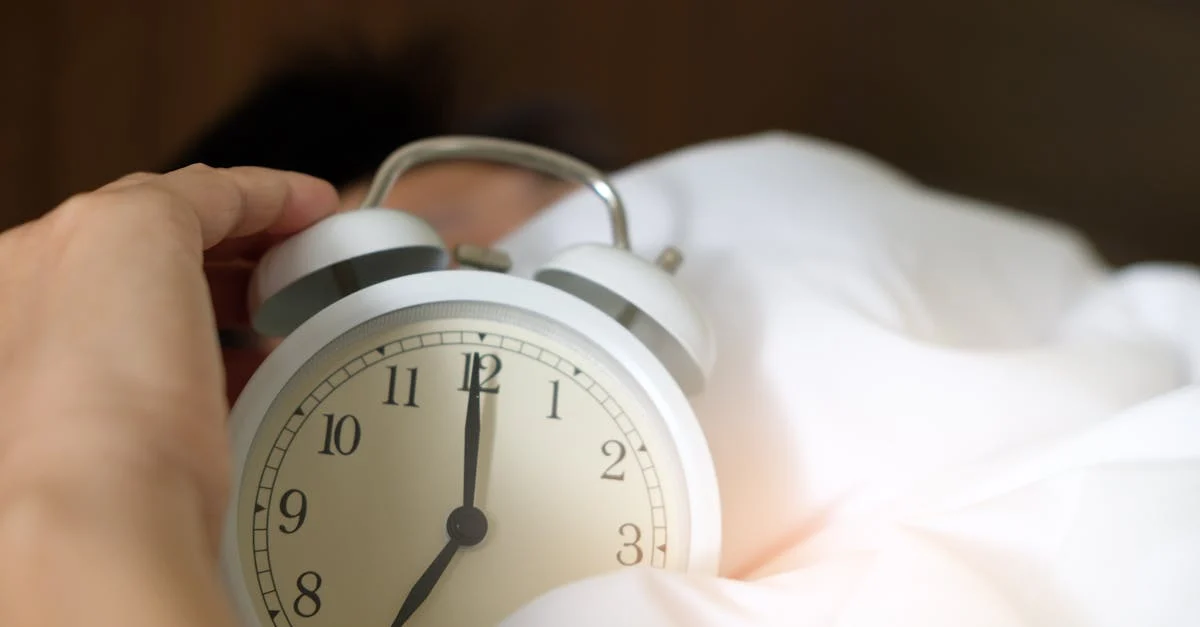Sleep is often overlooked in our fast-paced lives, yet it plays a crucial role in our overall well-being. Understanding the intricacies of sleep can open doors to a myriad of benefits that enhance our daily functioning. This blog post will explore innovative sleep & recovery techniques designed to help you achieve a truly restful night. By unlocking the secrets of sleep, you’ll discover ways to improve not only your nighttime rest but also your daytime performance.
Main Points
- Understanding the stages of sleep for better recovery.
- Incorporating relaxation techniques to prepare for sleep.
- Exploring the impact of diet and exercise on sleep quality.
- Utilizing technology and environment to optimize rest.
- Establishing consistent sleep routines for long-term benefits.

The Science Behind Sleep: Understanding Your Body’s Rhythms
Understanding the science of sleep reveals profound insights about our body’s rhythms. Sleep is a complex process governed by biological mechanisms, influencing our physical and mental well-being. It is during sleep that essential restorative activities occur, providing numerous Sleep & Recovery benefits.
- Sleep & Recovery tips: Establish a bedtime routine to signal your body that it’s time to wind down.
- Sleep & Recovery techniques: Incorporate mindfulness practices to reduce stress before sleep onset.
- Track your sleep patterns to identify personal trends and optimize your rest.
Prioritizing these practices can transform the quality of your sleep, enhancing both health and daily performance.
Revolutionary Techniques for Stress Reduction: The Key to Better Sleep
To truly enhance your Sleep quality, innovative approaches to stress reduction prove invaluable. Techniques such as mindfulness meditation and progressive muscle relaxation can significantly lower anxiety levels. Engaging in these practices fosters a serene mental state, creating a perfect environment for restful nights. Interestingly, incorporating deep breathing exercises not only calms the mind but also prepares your body for rejuvenation. Ultimately, managing stress effectively is essential for achieving the deep Sleep and recovery our bodies crave.
Summary of Techniques
| Technique | Benefits |
|---|---|
| Mindfulness Meditation | Reduces anxiety and promotes tranquility. |
| Progressive Muscle Relaxation | Relieves tension and fosters relaxation. |
| Deep Breathing Exercises | Prepares the body for restful Sleep. |
Cognitive Behavioral Therapy for Insomnia: A Game-Changer in Sleep Recovery
Cognitive Behavioral Therapy (CBT) for insomnia stands as a revolutionary approach, transforming how individuals experience sleep. Its structured methodology addresses the root causes of sleeplessness rather than merely alleviating symptoms. Consequently, many have found lasting relief, fostering a profound recovery process. Furthermore, CBT encourages the cultivation of healthier sleep habits through practical techniques, thereby enhancing one’s overall well-being. This therapeutic approach is particularly effective, promoting not just improved sleep but a renewed sense of vitality in daily life.
Natural Sleep Aids: Exploring Herbal Remedies and Supplements
Finding effective Sleep solutions can often lead us to explore various natural options. Herbal remedies and supplements offer fascinating possibilities for those struggling with restless nights. Popular choices include:
- Chamomile: Known for its calming effects, chamomile may help promote relaxation.
- Valerian Root: Often used to alleviate insomnia, it might enhance sleep quality.
- Lavender: Its soothing aroma may create a peaceful environment conducive to sleep.
However, individual responses may vary, prompting a need for careful consideration and consultation. Incorporating these natural sleep aids astutely could truly enhance your Sleep & Recovery. Nevertheless, remember to pay close attention to personal effects and wellness.
Sleep Hygiene: Essential Practices for Creating Your Ideal Sleep Environment
Establishing a serene sleep environment is crucial for achieving restorative rest. To improve your Sleep & Recovery, prioritize a consistent sleep schedule. Darkness plays a vital role; thus, blackout curtains can significantly enhance your slumber quality. Furthermore, maintaining a cool temperature aids in falling asleep faster. Consider reducing noise distractions, as they disrupt the natural flow of rest. By incorporating these essential practices into your routine, you’ll foster an inviting atmosphere conducive to healthy sleep.
The Role of Nutrition in Sleep Quality: Foods That Promote Restfulness
Adequate nutrition plays a crucial role in ensuring quality sleep. Certain foods are renowned for their ability to enhance Sleep & Recovery. For instance, incorporating magnesium-rich foods, such as leafy greens and nuts, can significantly improve sleep quality. Additionally, consider foods high in tryptophan, like turkey and dairy, which promote the production of the sleep hormone melatonin. However, it’s essential to avoid heavy meals close to bedtime, as they can disrupt your body’s natural rhythms.
“What we eat profoundly affects how we sleep, impacting our overall well-being.”
Table of Sleep-Promoting Foods
| Food | Nutrient | Benefit |
|---|---|---|
| Almonds | Magnesium | Improves sleep duration |
| Turkey | Tryptophan | Enhances melatonin levels |
| Kiwi | Serotonin | Improves sleep onset |
Mindfulness and Meditation: Transforming Your Sleep Through Mental Wellness
In today’s fast-paced world, achieving restorative sleep can be a challenge. Engaging in practices such as mindfulness and meditation offers a path toward significant mental wellness, ultimately enhancing your nightly rest. Consider the following benefits:
- Stress Reduction: Elevating your awareness helps to manage stress, allowing for a calmer mind before sleep.
- Improved Focus: Incorporating techniques can sharpen your concentration, enhancing the quality of your daytime activities.
- Enhanced Sleep Quality: Regular mindfulness practices promote better sleep cycles, leading to more profound rejuvenation during sleep.
By fostering these practices, you can cultivate a serene sleep environment night after night. Mental wellness not only transforms your bedtime routine but also nourishes your overall well-being.
Conclusion
In conclusion, the importance of finding balance in our busy lives cannot be overstated. We often overlook our need for rest and recovery, especially when juggling various responsibilities. Incorporating effective Sleep & Recovery techniques can make a significant difference in our overall well-being. A well-rested mind and body improve focus and productivity, allowing us to face daily challenges with renewed energy. Therefore, it’s crucial to prioritize these techniques, as they not only enhance our physical health but also support our emotional resilience. Let’s embrace the simple yet powerful practices that promote better sleep and recovery, ensuring we lead healthier and more fulfilling lives.
Frequently Asked Questions
What are some effective sleep techniques for better rest?
Effective sleep techniques include establishing a regular sleep schedule, creating a relaxing bedtime routine, avoiding screens before bed, and optimizing your sleep environment.
How can I improve my recovery after exercise?
Improving recovery can be achieved through proper hydration, nutrition, stretching, and ensuring adequate sleep. Incorporating techniques like foam rolling and cold therapy can also help.
Is it normal to wake up during the night?
Yes, it is common to wake up briefly during the night. However, if it disrupts your overall sleep quality, it may be worth exploring relaxation techniques or consulting a healthcare professional.
How important is sleep for overall health?
Sleep is crucial for overall health, as it supports cognitive function, mood regulation, immune response, and physical recovery. Adequate sleep is linked to a lower risk of chronic diseases.
What are some natural remedies to help with sleep anxiety?
Natural remedies for sleep anxiety include herbal teas like chamomile or lavender, practicing mindfulness or meditation, and using essential oils such as bergamot or sandalwood to create a calming atmosphere.



